In the late 18th century, Europe was a continent marked by significant political, social, and economic tensions. The rise of absolute monarchies had solidified power in the hands of a few, deepening the chasm between the ruling elite and the common people. Feudalism entrenched a rigid social structure, while economic inequality left many in poverty, struggling to survive under the weight of rising taxes and limited opportunities. Alongside this, the dominance of religious institutions often stifled intellectual growth and suppressed dissent. Amidst these oppressive conditions, growing discontent began to simmer among the masses, setting the stage for a revolutionary upheaval. This blog post explores the intricate dynamics that shaped Europe on the eve of the Great French Revolution, illuminating the factors that ultimately ignited a quest for liberty and equality.
Rise of Absolute Monarchies
The period leading up to the great french revolution was marked by the undeniable rise of absolute monarchies across various parts of Europe, where rulers consolidated unprecedented power, often justified by the divine right of kings and a belief in their inherent authority to govern without the need for a governing body or the consent of the governed; this trend was evident in nations such as France, Spain, and Austria, where monarchs wielded control over both the state and the church, thereby intertwining political and religious power in unprecedented ways. Monarchs like Louis XIV in France epitomized this absolutist approach, creating a centralized state that prioritized the interests of the monarchy above all else, which, while fostering cultural and artistic advancements, also led to increasing resentment among the populace who felt marginalized and oppressed by these autocratic regimes. The power struggles and often conflicts that characterized this era, including rivalry between monarchies and emerging economic powers, set a backdrop for the immense social and political changes that would eventually culminate in the great french revolution, as the frustrations of the common people began to boil over.
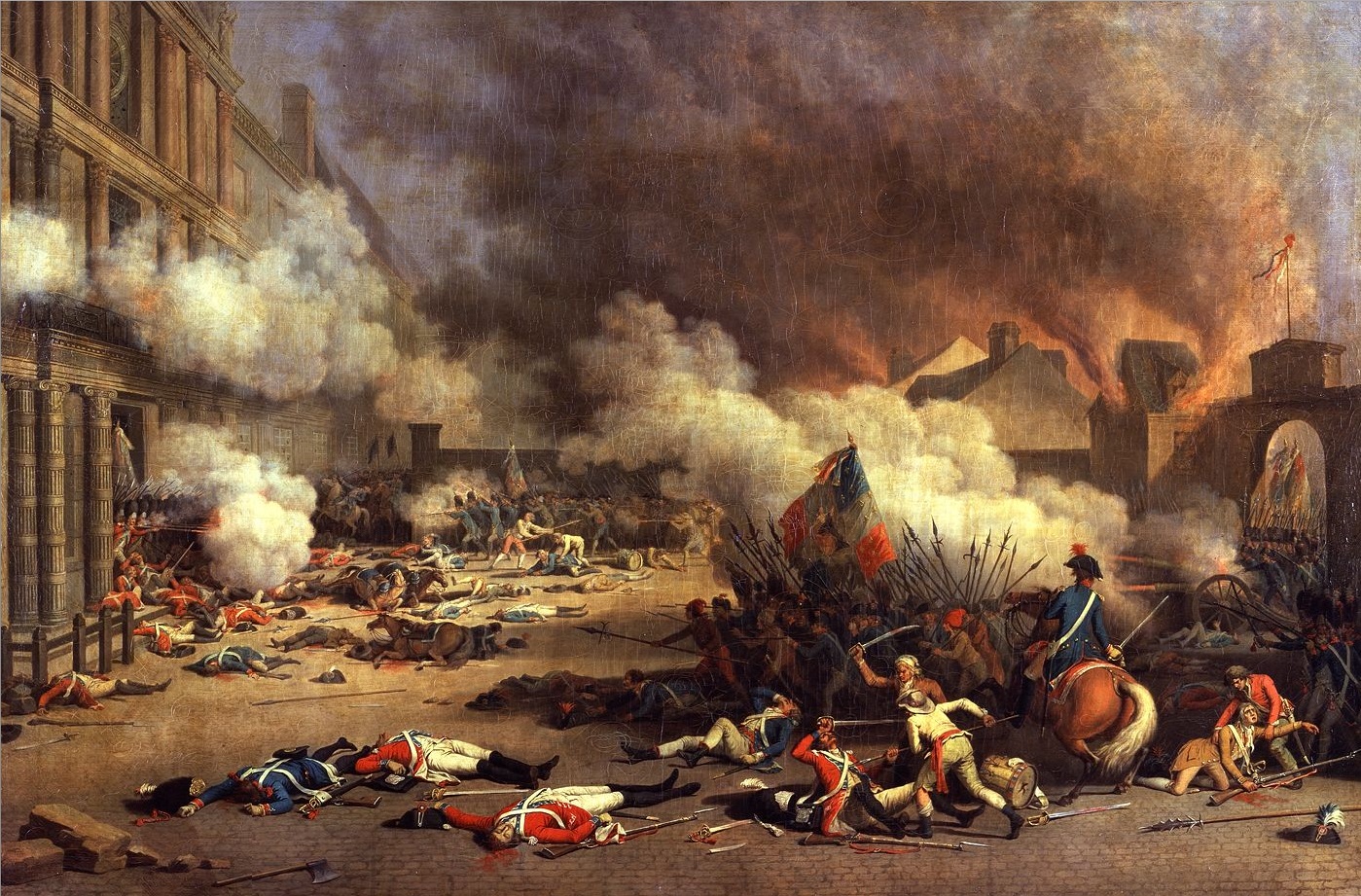
The Mechanisms of Control
As absolute monarchies flourished, they employed various mechanisms of control to maintain their grip on power, which included the establishment of bureaucracies that were loyal only to the crown and the exertion of direct influence over military and judicial branches, thereby ensuring that dissent was not only subdued but also that any challenge to the monarchy was systematically dismantled. Furthermore, the heavy taxation imposed on the peasantry and middle classes to support the lavish lifestyles of the aristocrats and the royal court ensured that the wealth disparity was magnified, which created an entrenched sense of disillusionment among the lower classes who found themselves overburdened for the sake of sustaining the opulence of the few. This, compounded by the lack of representation or rights for commoners within these monarchical structures, highlights how the rise of absolute monarchies was not merely a political shift but a catalyst for societal tensions that would become increasingly difficult to ignore as the cries for reform gained traction in the lead-up to the great french revolution.
The Influence of Enlightenment Ideas
At the same time, the rise of absolute monarchies coincided with the blossoming of Enlightenment thought, where philosophers and intellectuals began to challenge the traditional structures of authority, advocating for concepts like liberty, equality, and fraternity, which sharply contrasted with the ideals of divine kingship and hereditary privilege that characterized absolute monarchies. Thinkers such as John Locke and Jean-Jacques Rousseau planted the seeds of revolutionary ideas that questioned not only the legitimacy of absolute power but also the very foundations upon which society was built, thus igniting a spirit of inquiry and resistance against absolutism. This intellectual awakening empowered the populace to envision a different societal structure, one that was not dominated by a single ruler but rather based on the collective will of the people, setting the stage for the revolutionary fervor that would eventually lead to the great french revolution and inspire uprisings across Europe, as the dream of a more egalitarian society began to take root in the minds of the many.
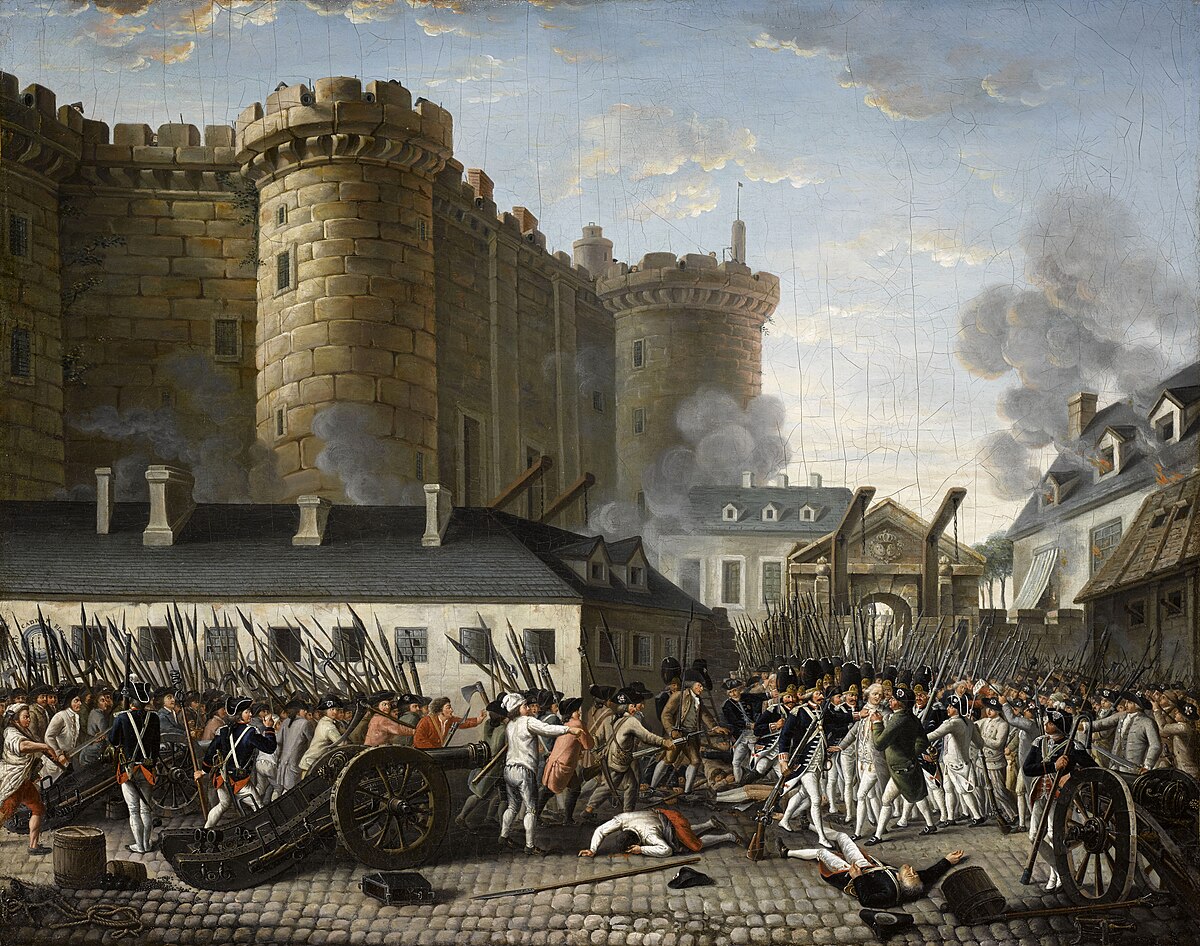
Feudal Society Structure
The feudal society structure that prevailed in Europe before the Great French Revolution was characterized by a rigid social hierarchy that divided individuals into distinct classes, with a significant emphasis on land ownership and the obligations that came with it, as nobles, knights, and serfs occupied predetermined roles within this intricate system; while the nobility enjoyed considerable power and wealth, often residing in grand castles and managing vast estates, the common people, particularly the serfs, were bound to the land they worked, laboring tirelessly to support both themselves and their overlords, which created a stark contrast between the affluence of the upper classes and the struggles faced by the lower classes. Moreover, this hierarchical system was not merely a socio-economic arrangement, but also one interwoven with traditions and allegiances that dictated the relationships among the various levels of feudal society, wherein a vassal pledged loyalty to a lord in exchange for protection and land, perpetuating a cycle of dependency and servitude that reinforced the existing power dynamics and facilitated the entrenchment of privilege among the elite. In a feudal society, the social roles were distinctly defined, and the mobility among these roles was exceedingly limited, which perpetuated a culture of inequality that would eventually lead to growing unrest; peasants and serfs bore the brunt of heavy taxation, military service, and labor obligations, while the nobility often indulged in a lavish lifestyle, highlighting the stark disparities inherent in this system.
- Nobility: The ruling class, owning significant lands and wielding substantial political power.
- Knights: Vassals who served the nobility and were granted land in exchange for military service.
- Peasants and Serfs: The laboring class, bound to the land, working to sustain the feudal system.
The feudal system also deeply influenced the governance of society, as lords held judicial power in their respective territories, allowing them to enforce laws, collect taxes, and administer justice, which often led to arbitrary rule that favored the interests of the nobility over those of the common people, rallying dissatisfaction and contributing to the narrative of oppression that would echo in the years leading up to the Great French Revolution. As discontent grew among the masses, particularly the educated bourgeoisie who observed the glaring disparities and longed for more autonomy and equity, the unresolved tensions brewed beneath the surface, setting the stage for an upheaval that would challenge the very foundations of feudal society and mark a transformative moment in history, ushering in a new era of change and modernization that would redefine social structures and governance across Europe. In conclusion, the feudal society structure, with its clear distinctions between classes and the oppressive dynamics it engendered, played a significant role in fostering an environment ripe for revolution, as the struggles of the lower classes against their noble overlords gradually crystallized into the broader revolutionary sentiment that culminated in the dramatic events of the Great French Revolution, ultimately leading to the dismantling of the old order and paving the way for the rise of modern democratic ideals.
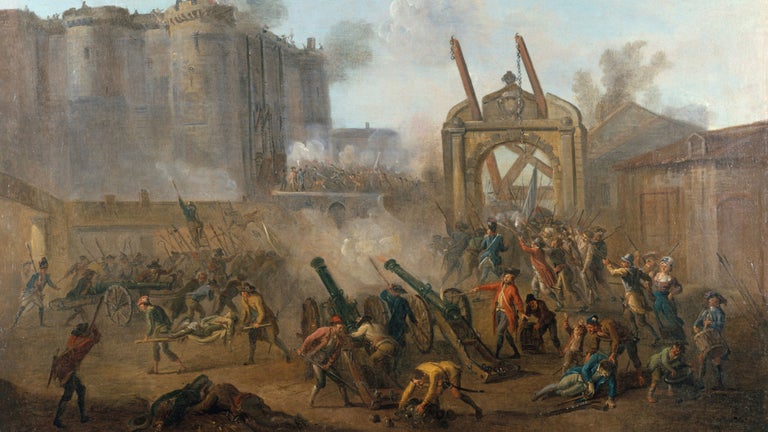
Economic Inequality and Poverty
With an ever-widening chasm between the wealthy elite and the impoverished masses, the stage was set in Europe before the great french revolution for a dramatic confrontation between social classes that had long been at odds, where the opulence of the aristocracy starkly contrasted with the grim realities faced by commoners who struggled to meet even their basic needs. The various kingdoms and principalities across the continent were characterized by a feudal system of governance, wherein wealth and land were concentrated in the hands of a few noble families, while the vast majority of the population spent their lives in servitude or in menial labor, barely scraping by on meager earnings that left them vulnerable to the whims of economic downturns, harvest failures, or expensive taxation policies designed to support the luxurious lifestyles of the ruling class rather than alleviate the suffering of the poor.
The Unseen Burden of Taxation
In this context, the fiscal responsibilities imposed on the lower classes were extraordinarily oppressive, as commoners were burdened with high taxes that were levied to fund extravagant royal expenditures and lavish lifestyles, which were often totally disconnected from the harsh realities faced on the ground by those employed in agriculture, craftsmanship, or trades. This taxation system, designed to perpetuate the privileges of the nobility and clerical authorities, drained the already limited resources of the lower classes, rendering them even more susceptible to poverty, compounding a sense of injustice and resentment that would simmer throughout society until it exploded during the upheaval of the great french revolution. Furthermore, there was little to no social mobility for the lower classes, as the economic structures in place were deeply entrenched, making it nearly impossible for individuals to elevate their status or escape the cycle of poverty that had long defined their existence.
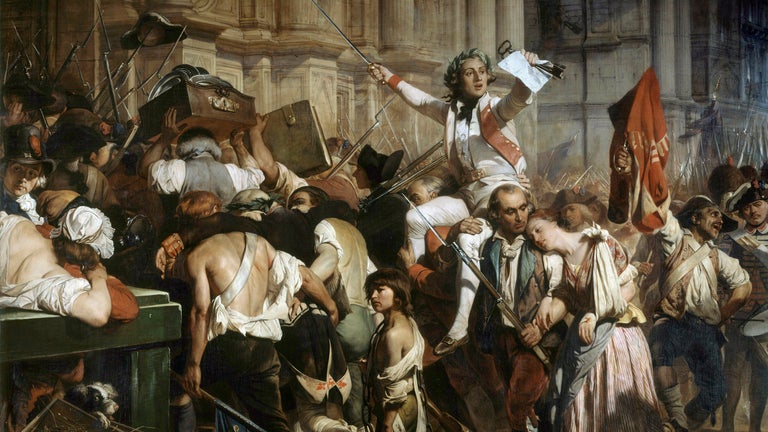
The Cycle of Poverty and Despair
As discontent brewed, it became increasingly clear that the economic situation was not just a matter of personal misfortune, but rather a systemic failure that left the majority of the populace living in conditions that were not only deplorable but also dangerous, further exacerbating societal tensions that were already brewing beneath the surface. With widespread hunger, inadequate shelter, and illness running rampant due to a lack of medical care, the plight of the impoverished citizens of Europe was profound and revealing, a stark reminder of the vast inequity that characterized daily life in the years leading up to the great french revolution. As these struggles took center stage in public discourse, they would ultimately serve as the catalyst for a movement that would challenge the very foundations of aristocratic privilege and demand a more equitable society, forever changing the course of European history.
Religious Dominance and Intolerance
In the period leading up to the great french revolution, Europe found itself entrenched in a complex web of religious dynamics that significantly influenced societal structures, power hierarchies, and personal freedoms, wherein the Catholic Church, wielding immense authority and influence, became the primary source of religious dominance, often dictating not only spiritual matters but also intersecting deeply with political and social realms, thus engendering an environment where dissent, particularly from emerging Protestant factions and other religious minorities, was met with severe intolerance. The established Church, inherently resistant to any form of challenge or reform, maintained a grip on education and public morality, ensuring that its teachings were woven into the very fabric of daily life, which in turn cultivated a culture of compliance that left little room for pluralism or alternative viewpoints, and such an environment inevitably fostered a climate of fear and repression for those who dared to diverge from the prescribed orthodoxy.
The Role of the Catholic Church
The Catholic Church, as the predominant religious institution in Europe, operated almost as a state within a state, commanding not only the spiritual lives of millions but also exerting considerable influence over kings and governments, thereby enforcing a system where loyalty to the Church was tantamount to loyalty to the crown, effectively blurring the lines between religious belief and political allegiance. This intertwining of church and state meant that those who opposed the established Church often faced dire repercussions, including persecution, imprisonment, and even execution, as evidenced by the infamous Inquisition which sought to root out heresy and maintain doctrinal purity, and this pervasive atmosphere of repression contributed to the burgeoning tensions within society, laying the groundwork for the upheaval that characterized the great french revolution. Moreover, the Church’s economic power further enabled it to shape societal norms and governance, ensuring that its doctrine remained unchallenged while simultaneously enriching its coffers at the expense of both the peasantry and emerging middle classes, who found their voices and aspirations stifled by the monolithic nature of religious power.
Impact of Religious Intolerance
In parallel to the Church's dominance, religious intolerance manifested in the form of violent conflicts, most notably the wars of religion that swept across Europe during the sixteenth and seventeenth centuries, which brutally pitted Catholics against Protestants, leaving a legacy of bitterness and division in their wake, that would reverberate throughout the subsequent decades, creating factions and perpetuating a sense of mistrust among different religious groups that had profound implications for social cohesion. This intolerance extended beyond mere theological disputes, ensnaring socio-political entities within a cycle of vengeance and retribution, thereby further disenfranchising the common populace who yearned for a more tolerant and inclusive society free from the chains of dogma and fear, ultimately influencing revolutionary sentiments as the great french revolution approached. As the enlightenment thinkers began to champion principles of reason, secular governance, and individual rights, the rigid structures of religious dominance came under increasing scrutiny, signaling a paradigm shift towards a more liberated society that would eventually reject the dogmas of the past in favor of values aligned with human dignity and freedom.
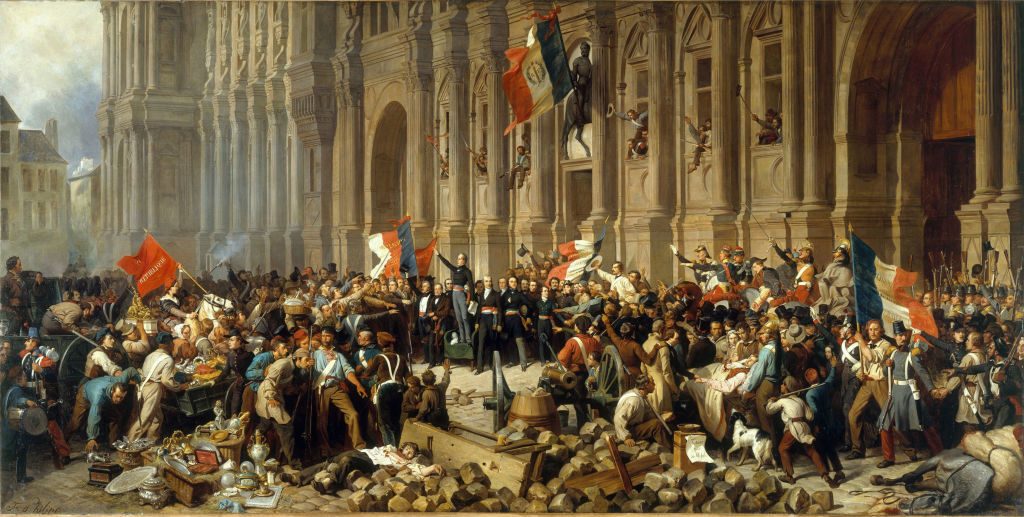
Limited Rights and Freedoms for Commoners
The landscape of Europe prior to the onset of the great french revolution was marked by a stark division among the populace, where commoners, essentially comprised of peasants and urban dwellers, found themselves grappling with an acute lack of rights and freedoms, which were predominantly hoarded by the aristocracy and the monarchy, leaving the lower classes bereft of the privileges enjoyed by their social superiors; this emulation of rigid control manifested in various forms, including the enforcement of laws that stripped commoners of their voice and agency in matters that directly affected their lives. The feudal structure further exacerbated this issue, tightening the grip that landowning nobles held over the peasantry by enforcing obligations that restricted any semblance of autonomy, with serfs often bound to the land they worked on, thus creating an inescapable cycle of subservience and economic dependency that stifled any hope for personal freedom or social mobility, thrusting the masses into a quagmire of despair and disenfranchisement.
Legal Constraints and Social Limitations
Despite the existence of certain customary rights, the overarching reality was that for the majority of commoners, any semblance of legal protection was often illusory, as the courts were largely influenced by the whims of the aristocratic elite, who utilized their power to suppress any attempts by the common people to seek justice or advocate for their fundamental rights, which meant that the everyday struggles of peasant families remained woefully ignored and unaddressed. The pervasive atmosphere of fear, intimidation, and brutal retribution only served to discourage dissent and foster a climate where the people felt utterly helpless against the abuses of those in power, making it nearly impossible for them to challenge the status quo, leading many to accept their plight as an inevitable part of life. Additionally, the institutions of the time, such as the church and the local nobility, served to reinforce existing hierarchies rather than facilitate any form of progress or social reform, leaving commoners to navigate an unyielding environment marked by rigid expectations and debilitating restrictions.
Social Mobilization and the Road Ahead
As the frustrations among the masses grew, there was an emerging awareness among commoners about their limited rights and the necessity for change, which began to plant the seeds of unrest that would eventually burgeon into the widespread calls for reform epitomized by the great french revolution; social gatherings and discussions, albeit dangerous, started to take place among commoners, leading to a burgeoning consciousness regarding their social and economic rights. Although initial attempts at collective action were often met with harsh repercussions, the growing realization that they were not alone in their struggle began to shift sentiments towards the need for a unified voice and a more structured approach to advocate for their rights, ultimately illuminating a path toward resistance and mobilization against the elite who thrived off their labor. Consequently, as the common people began to articulate their grievances and demands for a more equitable structure, the limitations imposed on their rights and freedoms served as both a catalyst for rebellion and a testament to the pervasive inequalities that characterized European society prior to the initiation of the revolutionary fervor ignited by figures such as the Parisian sans-culottes.
- Commoners often faced unjust treatment in legal matters.
- Many were bound to their lords and denied freedom to move or prosper.
- Attempts to challenge the elite were met with harsh consequences.
- Emerging awareness among commoners about their rights.
- Social gatherings fostered a sense of unity and purpose among the masses.
Scientific and Intellectual Suppression
During the period leading up to the great french revolution, the landscape of intellectual thought and scientific inquiry was relentlessly constrained by a combination of authoritarian rule and a deep-seated distrust of emerging ideas that threatened the established social and religious order; this climate of oppression not only stifled creativity and innovation but also fostered an environment where scholars, thinkers, and scientists frequently found themselves at odds with the prevailing dogmas of the time. In this oppressive atmosphere, the Church wielded considerable influence over educational institutions, further perpetuating a sense of intellectual stagnation as critical examination and questioning of authority were often met with severe penalties, including censorship and persecution, as evidenced by historical cases such as that of Galileo, whose findings on heliocentrism were vehemently rejected in favor of geocentric beliefs. Thus, intellectuals were caught in a precarious position, forced to navigate the treacherous waters of prevailing norms while attempting to sow the seeds of new ideas, and unfortunately, their voices were frequently silenced in favor of those who perpetuated the status quo. A telling example of this suppression can be found in the impact of the Enlightenment thinkers, who sought to challenge traditional beliefs and advocate for reason, liberty, and empirical evidence, yet often found their works either suppressed or carefully monitored to minimize their influence on the general populace, revealing the extent to which authorities would go to maintain control over knowledge and ideas. The limitations placed on intellectual freedom led to a great deal of frustration among the educated classes, who began to see the value in pushing against societal restraints, thus planting the seeds of what would later become a more significant revolt against traditional structures, ultimately leading to the intellectual upheaval that would characterize the age of the great french revolution.
| Prominent Thinkers | Key Contributions | Responses from Authorities |
|---|---|---|
| Voltaire | Proposed ideas of civil liberties and freedom of expression. | Censorship and exiles due to criticism against religious and political authorities. |
| Rousseau | Advocated for the social contract and popular sovereignty. | Works were banned, as they threatened the legitimacy of monarchical power. |
| Diderot | Co-editor of the Encyclopedia which spread Enlightenment ideas. | Facing interference and censorship from both the Church and State. |
The fear of revolutionary thought was palpable, leading to the stifling of journals and publications that might give voice to dissenting opinions or revolutionary sentiments, thereby entrenching existing power structures that prioritized maintaining the status quo over fostering a progressive intellectual environment. Furthermore, individuals who dared to express their ideas without regard for censorship risked being labeled as radicals or heretics, often resulting in severe repercussions, such as imprisonment, execution, or forced exile, creating an environment of fear where silence became a safer option than the pursuit of knowledge. This oppressive scenario not only contributed to a profound sense of frustration among the masses, especially the burgeoning middle class, who were beginning to question the rationale behind existing hierarchies, but also set the stage for a significant backlash against those very systems of oppression that had restricted human thought and freedom, ultimately culminating in the radical transformation that characterized the great french revolution. In summary, the intersection of scientific inquiry and intellectual innovation was marred by significant repression in the years leading to the great french revolution, a time when emerging ideas faced ceaseless challenges from both the religious and political elites who sought to maintain their grip on power and prevent any shift in the prevailing narrative that justified their authority over the populace. By examining the depth of scientific and intellectual suppression that existed during this era, we can better understand not only the motivations behind the revolution but also the enduring legacy of Enlightenment thought that has continued to inspire generations toward the pursuit of knowledge, critical inquiry, and the unwavering belief in individual rights and freedoms that resonate in democratic ideals today. Ultimately, the struggles faced by intellectuals of this period serve as a poignant reminder of the importance of safeguarding intellectual freedom against tyranny, for it is often through the lens of bold thinkers that progress is achieved and societies are transformed.
Social Hierarchy and Aristocratic Privileges
In the deeply stratified society of pre-revolutionary France, the social hierarchy was rigidly established, consisting of three distinct estates, with the First and Second Estates—comprising the clergy and the nobility—enjoying numerous privileges that set them apart from the vast majority of the population, which constituted the Third Estate comprised of peasants, urban workers, and the burgeoning bourgeoisie. This entrenched social order not only served to elevate the aristocracy, who sauntered through life adorned in lavish garments and privileged by exemption from many taxes, but also reinforced the glaring disparities in wealth and opportunity, manifesting a systemic inequality that echoed the sentiments of discontent seeping through the communities of commoners, ultimately laying the groundwork for the seismic shifts that would accompany the great french revolution. As a testament to their entrenched position, the nobility wielded significant influence over state affairs, as well as a pronounced presence in cultural life, thus perpetuating a cycle of privilege and power that would soon face monumental challenges. The privileges of the French aristocracy were astonishingly extensive, manifesting in various facets of life, from fiscal exemptions to control over local judicial matters, which further solidified their dominance and estrangement from the common citizenry. The nobles did not just rule; they defined the very culture and societal norms that marked the essence of French identity, a statement illustrative of the pervasive reality faced by the lower classes, who often struggled for basic rights and recognition. The disconnection between the lofty ideals of liberty and equality, espoused by Enlightenment thinkers, and the everyday oppression felt by the masses ignited a growing awareness of injustice that would ultimately fuel calls for radical change. To illustrate the stark differences between the lives of the privileged and the common folk, one can look at several key aspects of aristocratic life that were in sharp contrast to that of the Third Estate:
- Tax Exemptions: Nobles were largely exempt from the burden of taxes that weighed heavily on the commoners.
- Judicial Privileges: Aristocrats often had their own courts and could bypass the centralized justice system.
- Land Ownership: The vast majority of land was owned by the nobility, who profited from the labor of peasants.
This plethora of advantages not only fortified the social gap but also contributed to an atmosphere ripe for rebellion, as the Third Estate grew increasingly aware of their disparities in treatment compared to the pampered lifestyles of the aristocracy. As voices began to rise in unison, demanding an end to the privileges that had long enriched a select few while leaving the masses in dire straits, the winds of change set the stage for a tumultuous upheaval, signaling that the long-standing institutions of privilege were about to be tested and irrevocably transformed during the imminent great french revolution. Ultimately, the stark contrast between the lives of the aristocrats and the suffering of the commoners became not just a narrative of difference, but a growing manifesto for revolution, as the undercurrents of societal dissatisfaction swirled into a call for radical change and equality that would alter the very fabric of French society forever.
Growing Discontent Among the Masses
Throughout the late 18th century, particularly in the years leading up to the great french revolution, the masses throughout Europe began to feel an intense and pervasive sense of discontent, stemming primarily from a multiplicity of socio-economic grievances, the oppressive weight of taxation, and the sheer disparity of wealth that seemed to favor the elite over the common people, leading to widespread unrest and agitation among those who toiled tirelessly yet reaped little reward for their efforts. This burgeoning dissatisfaction was not simply a result of one isolated factor, but rather a culmination of long-standing frustrations that had been festering for decades within a feudal society that was increasingly perceived as both outmoded and unjust, as well as a realization among the common folk that their dignity and agency were being systematically undermined by a ruling class that seemed utterly indifferent to their plight. As people began to speak out against the prevalent inequalities, the intellectual waves of the Enlightenment provided fertile ground for revolutionary ideas to permeate the fabric of society, encouraging citizens to question the legitimacy of absolute monarchical rule and the divine right of kings, which had long been accepted without question, thus allowing for a dramatic shift in public opinion and fostering a growing sense of unity among the discontented classes who felt that they were unjustly excluded from any meaningful participation in the governance of their own lives. This swelling tide of popular discontent was punctuated by sporadic protests and uprisings, indicating a restlessness that signaled a clear demand for change, as more and more individuals rejected the notion that they should remain passive subjects in a system that perpetuated their suffering and denied basic rights and privileges while the aristocracy continued to thrive in their palatial estates. To better illustrate the factors that contributed to the escalating tensions leading up to the great french revolution, the following table depicts some of the main grievances that stoked the fires of discontent among the masses:
| Grievance | Description |
|---|---|
| Heavy Taxation | Commoners were burdened with excessive taxes that funded lavish lifestyles for the nobility. |
| Food Shortages | Frequent crop failures led to soaring food prices and widespread hunger among the lower classes. |
| Lack of Representation | Common people were excluded from decision-making processes, leaving them voiceless in matters affecting their lives. |
| Judicial Inequities | The legal system favored the noble class, perpetuating injustices against common citizens. |
The convergence of these grievances resulted in a palpable sense of urgency among the masses as they began to organize themselves into active groups that sought to unite their voices against the staggering injustices they experienced daily, a fact that began to inspire hope among the oppressed as they envisioned a future where their basic rights would be recognized and respected, ultimately paving the way for revolutionary zeal that could no longer be contained. With pamphlets and revolutionary literature circulating widely, the ideologies of equality and liberty took root in the minds of the common people, further fueling their desire for systemic change and the reclamation of dignity, thus transforming the landscape of societal interactions where the aristocracy had previously held unquestionable sway. The growing discontent among the masses inevitably set in motion a series of events that would lead to an unprecedented upheaval, and though the path ahead seemed fraught with uncertainty, the collective yearning for a more equitable society proved to be a powerful catalyst for the monumental changes that would soon come to define the era of the great french revolution as the long-suffering citizens gathered the courage to stand up against centuries of oppression and inequality, declaring in no uncertain terms that they would no longer allow their voices to remain silenced in the faces of tyranny and strife.
- Increased awareness of social injustices
- Influence of Enlightenment thinkers
- Emergence of a politically active middle class
- Impact of poor economic conditions
- Growing solidarity among the lower classes
Frequently Asked Questions
What were the main social classes in Europe before the Great French Revolution?
Before the Great French Revolution, European society was primarily divided into three estates: the clergy (First Estate), the nobility (Second Estate), and the common people (Third Estate), with the Third Estate making up the majority of the population but holding little power.
What economic conditions contributed to the unrest in Europe prior to the revolution?
Economic hardship, including poor harvests, rising food prices, and overwhelming taxation on the Third Estate, created significant dissatisfaction among the populace and contributed to the revolutionary atmosphere.
How did Enlightenment ideas influence the situation in Europe before the revolution?
The Enlightenment introduced ideas of liberty, equality, and fraternity, challenging traditional authority and inspiring the common people to demand political and social reform.
What role did the monarchy play in the general situation of Europe before the revolution?
The French monarchy, particularly under King Louis XVI, faced criticism for its extravagant spending and ineffective governance, further aggravating the discontent among the public and the burgeoning revolutionary sentiment.
Were there any significant events that escalated tensions in Europe before the Great French Revolution?
Yes, events such as the financial crisis faced by the French government, the Assembly of Notables in 1787, and the Estates-General convened in 1789 were pivotal in escalating tensions and fostering revolutionary ideas.
What was the impact of the American Revolution on Europe before the French Revolution?
The success of the American Revolution inspired European thinkers and revolutionaries by demonstrating that a populace could overthrow a monarchy and establish a government based on democratic principles.
How did the feudal system contribute to the general situation in Europe prior to the Great French Revolution?
The remnants of the feudal system perpetuated social inequalities, as the nobility enjoyed privileges and wealth while the peasants and urban workers faced hardships, contributing to widespread anger and calls for change.

